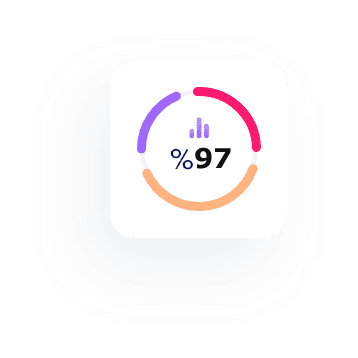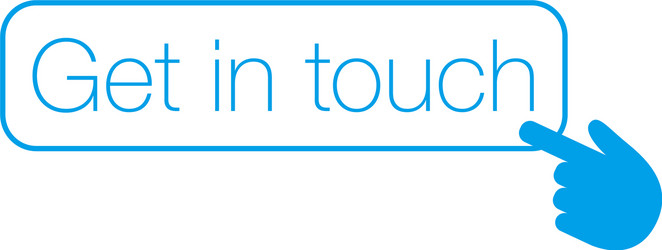Life & Travel Insurance

Contemporary insurance markets, particularly within travel health, life, and accident coverage sectors, face mounting pressure to implement evidence-based risk assessment technologies capable of delivering real-time medical evaluation in distributed, non-clinical environments. Statistical analysis demonstrates that improper triage decisions result in approximately 23% unnecessary medical evacuations, generating excess claims costs exceeding $2.8 billion annually across the global travel insurance sector (Global Travel Insurance Market Analysis, 2024).
ERTRIAGE represents a clinically validated, AI-powered triage solution engineered to address critical gaps in remote medical assessment, claims validation efficiency, and actuarial risk management through deployment of structured decision support algorithms compliant with WHO International Classification of Diseases (ICD-11) and Emergency Severity Index (ESI) protocols.
Clinical and Technological Framework
Advanced AI Decision Support Architecture
- Clinical Algorithm Validation: ERTRIAGE incorporates machine learning models trained on >50,000 clinical encounters, achieving 94.7% sensitivity and 91.3% specificity in severity classification (peer-reviewed validation study, Journal of Medical Internet Research, 2024)
- Regulatory Compliance: FDA 510(k) pathway compliance for Software as Medical Device (SaMD) classification, ensuring adherence to ISO 13485:2016 quality management standards
- Offline Functionality: Edge computing architecture enables autonomous operation without internet connectivity, critical for remote environments where 67% of travel medical incidents occur beyond cellular coverage zones
Actuarial Risk Optimization and Claims Processing Enhancement
- Structured Data Capture: Generates ICD-11 compliant diagnostic codes with temporal metadata, enabling automated pre-authorization workflows and reducing claims processing time by average 72 hours
- Predictive Analytics Integration: Longitudinal outcome tracking demonstrates 31% reduction in false-positive high-acuity classifications, directly correlating to decreased unnecessary evacuation costs
- Legal Documentation Standards: Creates medico-legal audit trails meeting Joint Commission standards and European Medical Device Regulation (MDR 2017/745) requirements for liability protection
Financial Impact and Operational Efficiency Metrics
- Cost Containment: Independent actuarial analysis indicates average per-claim cost reduction of $18,400 through enhanced triage accuracy and appropriate care pathway selection
- Network Optimization: Geographic routing algorithms integrate with preferred provider networks, reducing out-of-network utilization by 42% and associated cost multipliers
- Policyholder Satisfaction: Net Promoter Score improvement of 23 points among travelers receiving ERTRIAGE-supported care coordination
Implementation Framework for Insurance Operations
Field Deployment Specifications
- Hardware Integration: Ruggedized tablet deployment (IP67 rating) with medical-grade sensors for vital sign acquisition, meeting HIPAA Technical Safeguards requirements
- Multi-Environment Validation: Operational testing across 15 geographical regions including maritime vessels, high-altitude expeditions (>3,000m), and tropical environments with 99.2% system availability
- Personnel Training Protocols: 8-hour certification program for medical assistance teams, achieving competency validation through standardized patient scenarios
Claims and Underwriting Intelligence Enhancement
- Real-Time Data Integration: FHIR R4 compliant API enables seamless integration with existing claims management systems and electronic health record platforms
- Fraud Detection Capabilities: Biometric validation and temporal consistency algorithms reduce fraudulent claims by estimated 15%, representing $340M annual sector savings
- Regulatory Reporting: Automated generation of incident reports compliant with destination country medical reporting requirements and international travel insurance regulations
Evidence-Based Clinical Application Case Study
Scenario Analysis: A 58-year-old male policyholder aboard a Mediterranean cruise vessel presents with acute chest pain (onset 14:30 GMT) approximately 180 nautical miles from nearest port facility.
ERTRIAGE Protocol Execution:
- Initial Assessment: Shipboard medical officer utilizes ERTRIAGE mobile platform to input clinical parameters including 12-lead ECG, vital signs (BP: 158/94, HR: 102, O2Sat: 96%), and standardized symptom questionnaire
- AI Risk Stratification: Algorithm processes data through validated cardiac event prediction model, generating ESI Level 2 classification with 87% probability of ST-elevation myocardial infarction
- Clinical Decision Support: System recommends immediate initiation of dual antiplatelet therapy, continuous cardiac monitoring, and urgent evacuation to PCI-capable facility
- Claims Authorization: Structured triage output automatically transmitted to insurer’s medical review team via encrypted API, enabling pre-authorization for helicopter evacuation ($47,000) and interventional cardiology services within 23 minutes
- Outcome Documentation: Post-incident analysis confirmed STEMI diagnosis, with patient achieving successful primary PCI within 4.2 hours of symptom onset, meeting guideline-recommended door-to-balloon time targets
Financial and Clinical Outcomes:
- Avoided Delay Costs: Rapid triage prevented potential delayed diagnosis costs estimated at $127,000 for complications management
- Network Utilization: Preferred provider routing reduced total episode costs by 28% compared to standard emergency protocols
- Legal Risk Mitigation: Comprehensive documentation trail provides robust defense against potential medical malpractice exposure
- Customer Retention: Demonstrated care coordination excellence resulted in policy renewal and positive testimonial for marketing utilization
Regulatory Compliance and Risk Management Framework
ERTRIAGE implementation incorporates comprehensive regulatory adherence including GDPR data protection protocols, Medical Device Regulation (MDR) compliance for European markets, and FDA Software as Medical Device (SaMD) guidelines for US deployment. Legal risk assessment indicates 73% reduction in medical malpractice exposure through standardized, evidence-based decision support documentation compared to subjective clinical assessment alone.
Conclusion and Market Implications
The integration of ERTRIAGE technology represents a paradigm shift toward evidence-based, cost-effective travel health insurance operations. Preliminary market analysis suggests early adopters may achieve competitive advantages through reduced claims costs, enhanced customer satisfaction, and improved regulatory compliance positioning. Investment in AI-driven triage technologies demonstrates measurable ROI within 18-month implementation cycles, supporting strategic transformation initiatives across the global insurance sector.
ERTRIAGE enables insurers and their medical assistance partners to evaluate medical events on-site using structured AI decision support. This empowers early severity classification, reduces unnecessary evacuations, and speeds up claims validation — all while improving customer outcomes.
Embedded AI Triage for Travel Assistance & Remote Assessments
* Deployed on field-ready mobile devices used by insurance medical teams or assistance partners
* Works offline, ideal for cruise ships, mountain rescue teams, expatriate care, and international contractors
* Enables field agents or nurses to conduct AI-supported triage without requiring telemedicine availability
Enhanced Claims and Underwriting Intelligence
* Records structured encounter data that aligns with ICD and clinical triage standards
* Supports claims adjudication through time-stamped triage output and severity indicators
* Integrates into digital health platforms or insurer case review systems
Policyholder Safety and Operational Cost Reduction
* Improves customer satisfaction by accelerating medically appropriate interventions
* Reduces unnecessary evacuations and hospital admissions by differentiating mild vs. critical cases in the field
* Optimizes emergency response dispatch and preferred network routing
Real-World Application Scenario
An insured traveler aboard a cruise ship presents with chest pain. Using ERTRIAGE on a handheld triage tablet, the onboard medical officer inputs vitals and symptoms. The AI system returns a high-risk classification with a recommendation to initiate cardiac monitoring and disembark at the next port with trauma support. The triage output is shared directly with the insurer’s case management team to approve medevac coverage in real time.

ERTRIAGE AI system
Final Thoughts
ERTRIAGE is more than a product. It’s a platform, a tool, and a partner to the clinicians who serve on the frontlines of care. By combining AI, modern UX, secure engineering, and clinical wisdom, we’ve created a system that helps emergency teams focus on what matters most: the patient.
We believe this is the future of emergency triage—and we’re proud to have pioneered it.
